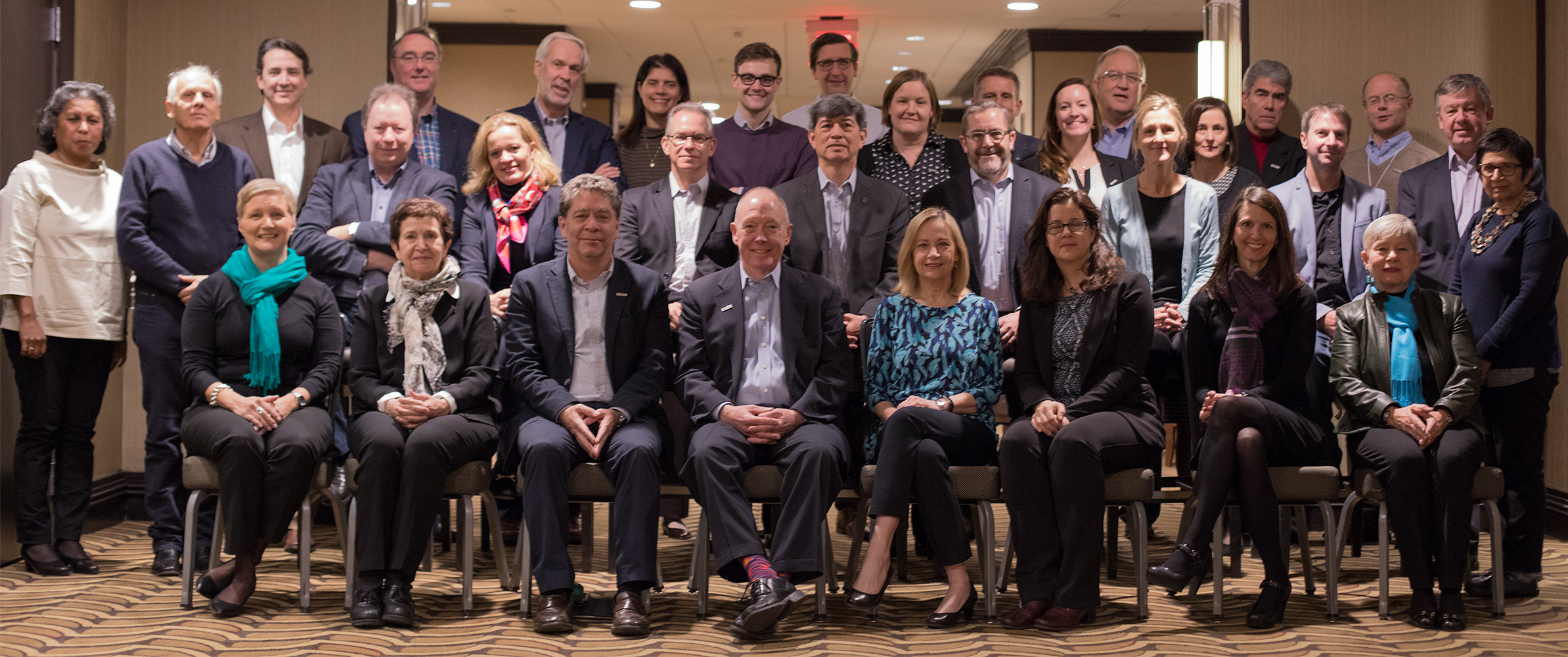ACE invited higher education, policy, and
business leaders from eight countries including the United States to
meet in Washington, DC, earlier this month to share lessons, policies,
and promising practices to improve postsecondary outcomes for
underserved students. The meeting is part of a two-year initiative
coordinated by ACE’s Center for Internationalization and Global Engagement (CIGE) with support from Lumina Foundation.
As participation in tertiary education has
expanded throughout much of the world in recent decades, the challenge
of supporting increasingly diverse student populations, and seeing them
through to the completion of a degree, is one faced by all of the
national or regional systems involved in the initiative: Australia,
Canada, Colombia, the European Union, Germany, Mexico, the United
Kingdom, and the United States.
Participants largely agreed that access to
financial support, academic readiness, and lack of socio-emotional
support are the chief barriers for students in their countries. While
challenges were shared, they were unable to identify examples of
coordination or exchange of best practices across national systems, with
the exception of Europe’s Bologna process.
In opening remarks, ACE president and leader
of the U.S. delegation Ted Mitchell described ACE’s longstanding
efforts—tracing back to its founding 100 years ago—to improve outcomes for underserved students through research, policy, and the dissemination of good practice. For example, ACE CREDIT makes
higher education credit equivalency recommendations for military and
corporate training programs; a recent report by ACE’s Center for Policy Research and Strategy
outlines key challenges for adult students and recommends ways that
higher education can better align with their needs; and an array of ACE Leadership programs strengthen the institutional leadership pipeline for women and people of color.
Courtney Brown, vice president of strategic impact at Lumina Foundation, outlined the foundation’s “Goal 2025”
to increase the number of Americans with postsecondary credentials to
60 percent by the year 2025, with a particular focus on reducing equity
gaps for African American, Latino, and American Indian students.
The Foundation has identified a number of
strategies for achieving that goal, including competency based learning,
improving the transparency of postsecondary credentials, and a focus on
adults with no postsecondary credential. With many countries achieving
attainment rates higher than the United States and others experimenting
with policies and practices that would move their postsecondary systems
toward such a goal, Brown asked, “What can we learn from you and from
each other?”

Higher education, policy, and business
leaders from eight countries including the United States met in
Washington, DC, on Feb. 2-4, 2018. ACE organized the convening, part of a
two-year initiative, with support from Lumina Foundation.
Each three-person delegation consisted of a
higher education institution leader, an association head or policy
expert, and a representative of the business or industry sector. In
addition to Ted Mitchell, U.S. delegation members included Paul J.
LeBlanc, president of Southern New Hampshire University, and Beverly
Tarulli, vice president for human capital strategy and workforce
analytics at PepsiCo.
Representatives of each delegation outlined
key challenges and opportunities for supporting underserved students,
identified in various ways across the different country contexts as
low-income, adult, racial or ethnic minority, persons with disabilities,
or those who live in remote rural areas.
Many participants described a recent shift in
the emphasis of their country’s higher education priorities from access
to completion and long-term outcomes for students, including employment
and lifelong learning. Representatives of several countries described a
rigid national policy framework for higher education that inhibits
experimentation with approaches such as flexible degree pathways. Many
raised questions related to future skills needed in the workforce and
the respective roles for universities, vocational and technical
institutions, and employers to help workers upskill and reskill to meet
changing labor market demands.
Despite widespread challenges of adapting
postsecondary education to better serve today’s students, there was
general agreement that it remains the most powerful engine of social
mobility worldwide.
At ACE2018, ACE’s 100th Annual Meeting,
March 10-13 in Washington, DC, participants of the global convening
from Canada, Colombia, and the United States will discuss early outcomes
of the ACE-Lumina initiative during a panel session moderated by
Fernando León García, president of CETYS University System (Mexico) and
chair of ACE’s Commission on Internationalization and Global Engagement,
titled “Student Success, Attainment, and Equity: International
Lessons.”
In the coming months, ACE will work with members of the delegations and a group of expert advisors
to develop working papers based on cross-cutting issues and a set of
case studies exploring specific policies and programs in participating
countries. A second global convening is tentatively planned for early
2019 in Mexico, in cooperation with Santander Universidades/Universia.
For more information, contact Heather H. Ward, associate director, CIGE, at hward@acenet.edu or 202-939-9320.
